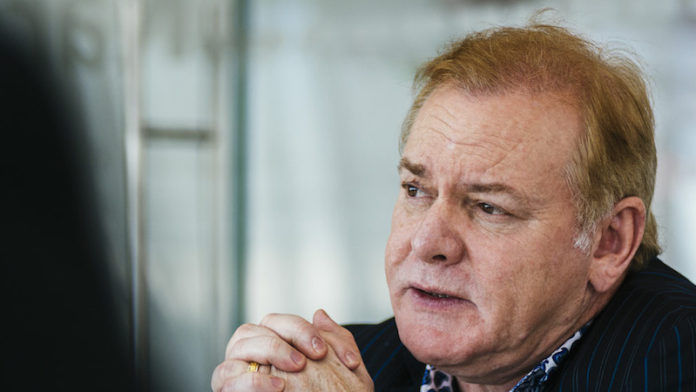
GOLD Fields CEO, Nick Holland, nailed his company’s colours to the South African mast, at least for the time being, telling media and analysts today there were no plans to switch to a primary offshore listing and that South Deep was a core asset for now.
Asked about whether the company’s shares laboured under a South African discount, Holland said: “Look how we’ve performed. We are one of the top performers in 2019 (of the world’s gold producers).
Shares in Gold Fields have gained nearly 88% on a 12-month basis which compares to gains of 34% for Newmont Mining, 38% for Barrick Gold, and 53% and 51% for AngloGold Ashanti and Harmony Gold respectively.
“Investors look at different companies but they all ask: can they make money. That is what they are after first and foremost.” Holland was commenting at Gold Fields’ 2019 results presentation in which he presented a normalised profit of $343m (2018: $27m), and a 91 South African cents per share final dividend.
AngloGold Ashanti this week confirmed the sale of its remaining South African assets – Mponeng gold mine and the surface retreatment business, Mine Waste Solutions – in a $300m transaction with the buyer, Harmony Gold. The sales were part of a strategy to narrow management’s focus and help de-risk the company. It’s also thought Mponeng would be unable to command fresh capital set against AngloGold’s other projects.
As part of this strategy, AngloGold has flagged the possible listing of its shares in the UK where it may even take a primary listing. These developments have been spun in media as historic given that the company has its roots in the gold assets of Anglo American which helped develop the Free State goldfields during the Forties and Fifties.
Holland said his firm’s view on its remaining South African asset – South Deep – was short-term with no fire sales planned.
The mine, situated west of Johannesburg, has a track-record of losing money, most recently in Gold Fields’ 2018 financial year in which it recorded a cash outflow of R1.9bn. In the 2019 financial year, however, South Deep appeared to have stabilised following a restructuring in which 1,500 employees were retrenched.
The mine generated net cash of R221m and produced 222,100 ounces of gold against a target of about 180,000 oz. Gold Fields has guided to production of 256,000 oz for the current financial year and has locked in gold sales for 75% of that production at 702,000 per kilogram (against a spot price of R751,000/kg).
Speaking later at a media roundtable, Holland said: “We have a responsibility to the country by making this big reserve viable”. South Deep contains about 38 million oz of gold.
The mine had responded to a smaller operating footprint whilst management had adopted a practical, short-term focus. This was a function of reducing development which Holland said was possible given the mine was ahead of plan. “It was never a question of the orebody. If you mine it properly, you get the grade. The key is: let’s get the volume and get stoping,” he said.
“I think we’ll be making money from South Deep. I’m sure you’ll remind me of that at the end of the year,” he told the audience.
Asked if the company still considered South Deep an asset for sale, Holland said no decisions had been made especially as it’d only made money for one year. “We want to give ourselves time; we don’t think there’s a big rush to turn the asset around.
“I would say let’s keep a strategic view on this.”
He didn’t believe that having given its $860m Salares Norte project in Chile the green light, Gold Fields had latitude to cut the strings on South Deep. “Don’t mix the two up. They are two completely different opportunities. This is not like a portfolio switch as they are at two different points of evolution.”











